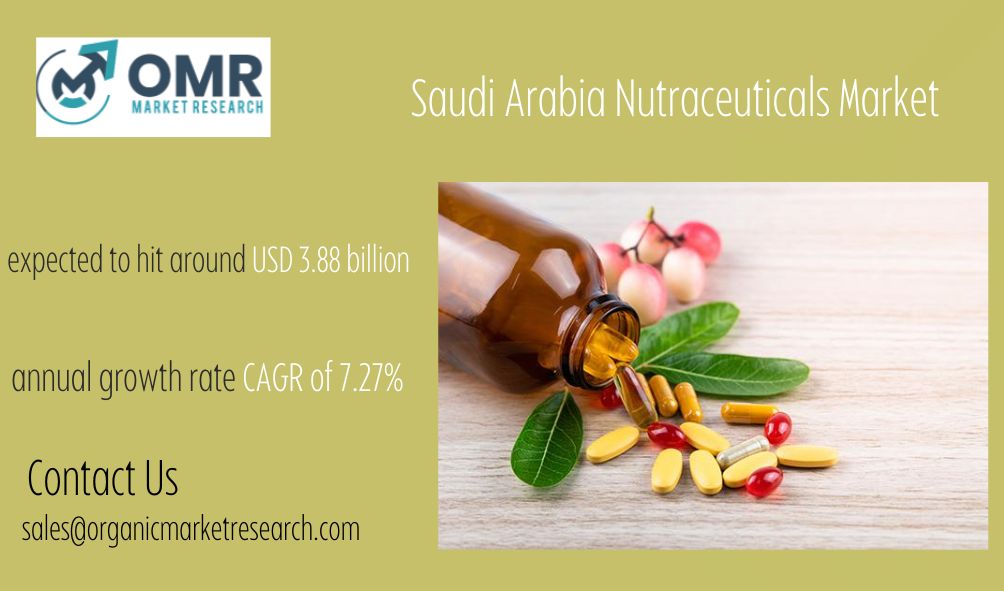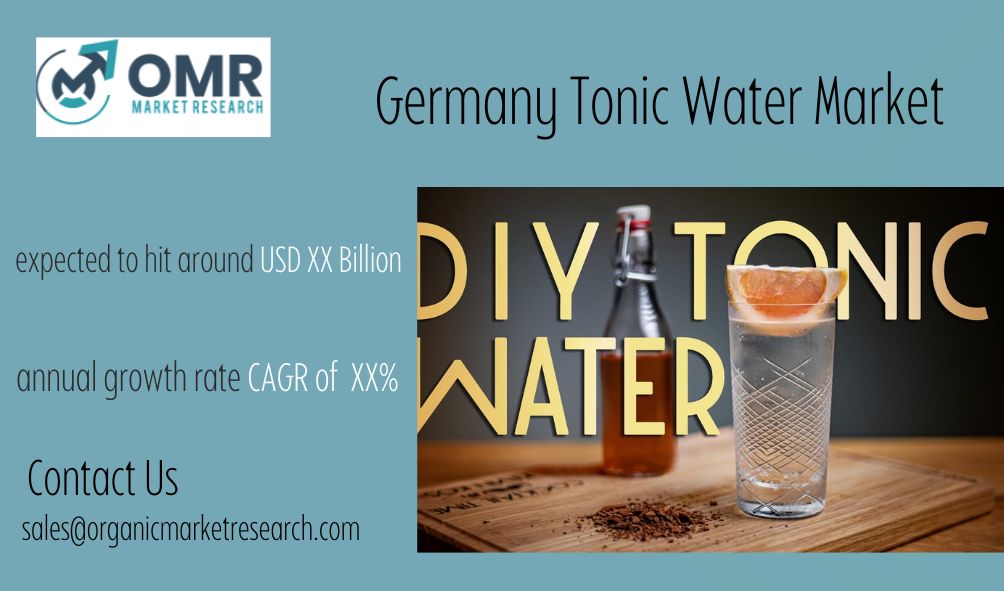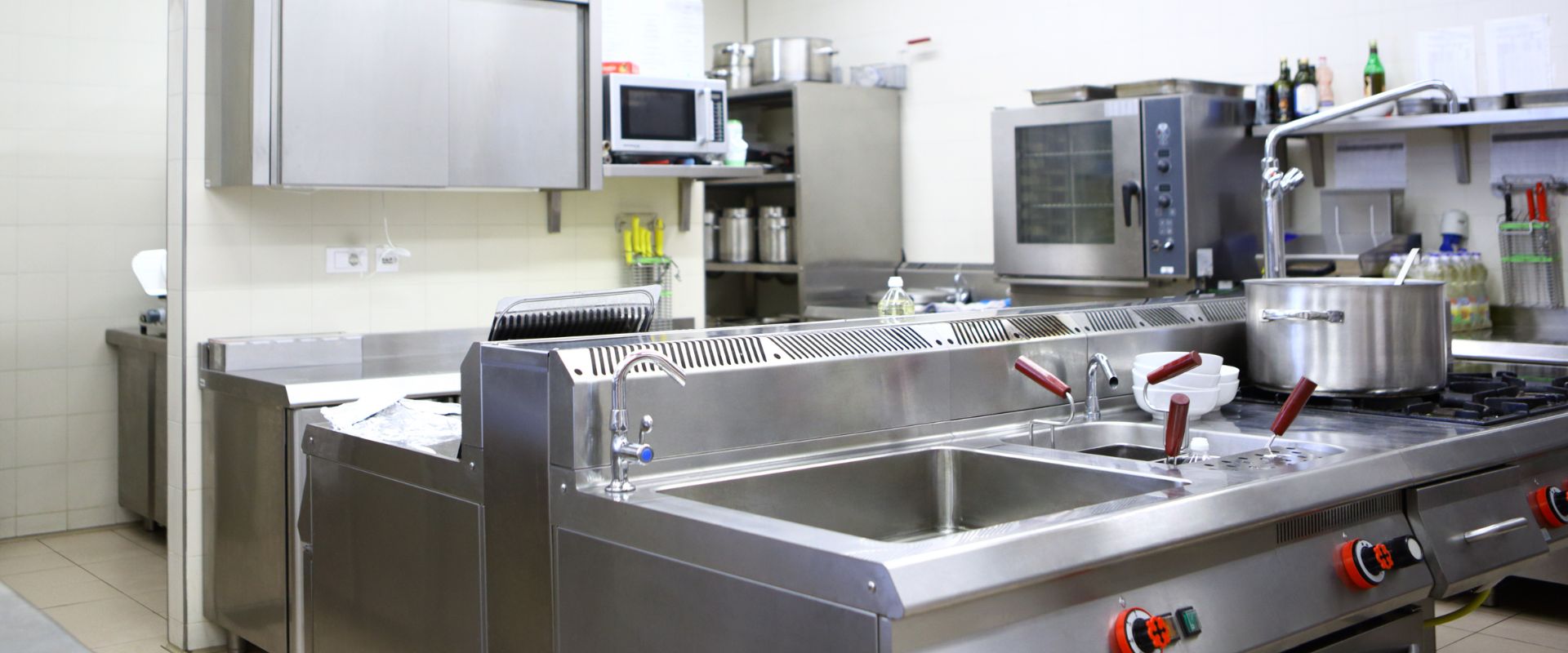Saudi Arabia Nutraceuticals Market size was USD 2.01 billion in 2023 and the market is projected to touch USD 3.88 billion by 2032, at a CAGR of 7.27 % during the forecast period. Saudi Arabia is a popular destination for pharmaceutical & processed food companies wishing to extend their product lines because of its big population and one of the strongest economies in the Middle East. As nutraceutical supplements in foods and beverages and supplementation gain more popularity, the industry will likewise grow in the years to come.
The growing demand from consumers for products that can help them stay healthy and prevent illness is predicted to drive growth in the dietary supplement industry. The rising knowledge of lifestyle problems in Saudi Arabia is probably going to encourage this growth. Dietary supplement manufacturers need to follow the rules set forth by the SFDA in order to be approved by the market. In Saudi Arabia, the demand for nutritious foods and drinks is being driven by a growing awareness of the significance of proper nutrition and health. Beyond just basic nourishment, these items are meant to offer additional health benefits like better immunological response, gastrointestinal health, and cognitive function.

Saudi Arabia Nutraceuticals report scope and segmentation.
Saudi Arabia Nutraceuticals dynamics
The factors influencing the dynamics of the Saudi Arabia Nutraceuticals Market include regulatory mandates, technological advancements, and increasing industrial safety awareness. Probiotic supplements are the most condition-specific category for mass-market retail sales in Saudi Arabia. As consumers become more aware of the potential benefits of probiotics, innovative probiotic products in a variety of delivery forms from gummies to functional foods are being developed. The two regional cities most likely to follow suit first are Riyadh and Jeddah. The kingdom’s market for nutritional supplements is growing, as evidenced by the probiotic industry’s phenomenal growth in the major economies of the region. The rising expense of healthcare in Saudi Arabia is likely to have a big effect on the market for nutritional supplements. As healthcare costs rise, people may resort to dietary supplements to prevent or treat illnesses, which could lead to an increase in the demand for dietary supplements. One of the main reasons driving healthcare costs in Saudi Arabia is the increased prevalence of chronic diseases like diabetes, heart disease, and obesity. Making lifestyle changes and taking dietary supplements can help manage these conditions and possibly minimize the need for expensive medical treatments. Nutraceuticals may also seem like a more affordable option to customers who desire a more natural approach to preserving their health or who cannot afford expensive medical procedures.
Saudi Arabia Nutraceuticals drivers
Growing Health Consciousness and Lifestyle Adjustments
Saudi Arabians are becoming more aware of their health and well-being due to the rise in lifestyle-related ailments like diabetes, obesity, and cardiovascular diseases. Nutraceutical goods, which are thought to be advantageous for maintaining health, preventing sickness, and improving general wellness, are therefore seeing growth in the market. Growing more health conscious, consumers are searching for goods like functional meals, nutritional supplements, & fortified beverages that will improve their quality of life. The younger population is also increasingly proactive and knowledgeable about fitness and health, which is driving up demand for nutraceuticals. The Saudi Arabian nutraceuticals industry is expanding as a result of a notable shift in consumer preference toward healthier lifestyle options.
Government Initiatives and Supportive Regulations
The Saudi Arabian government is putting several wellness-promoting initiatives and laws into place in an attempt to enhance the general health of its citizens. The Saudi Vision 2030 initiative aims to improve the quality of healthcare and encourage healthy living. In an effort to increase local production and lessen reliance on imports, the government is also encouraging the growth of the pharmaceutical and nutraceutical sectors in the region. Additionliy, standards and guidelines are being established by regulatory authorities to guarantee the safety and effectiveness of nutraceutical products, fostering customer confidence and market expansion. The favorable environment created by these encouraging government initiatives and regulatory frameworks is conducive to the growth of the nutraceuticals market in Saudi Arabia.
- Restraints:
High Product Costs and Economic Factors
The high price of nutraceutical products is the Saudi Arabian nutraceuticals market’s problem. Many nutraceuticals have a premium price tag, especially if they are imported, because of things like high production costs, import duties, and distribution costs. Nutraceutical goods may become less affordable for a large portion of the public due to their high pricing, especially for those with limited disposable money. Furthermore, shifts in disposable income and the state of the economy might have an effect on customers’ regular capacity to afford these things. The market’s high price sensitivity could push buyers to choose more affordable options or conventional treatments, which would limit the nutraceutical market’s expansion.
Lack of Awareness and Misconceptions
Customer ignorance and widespread misperceptions regarding nutraceutical items. Many Saudi Arabians may still be ignorant of the advantages of nutraceuticals or may not completely comprehend their role in health and wellness, despite the country’s growing health consciousness. Because they might not recognize the benefits of investing in nutraceuticals, consumers’ lack of knowledge and comprehension can be a serious obstacle to the market’s growth. To overcome this obstacle, massive public awareness campaigns and marketing initiatives aimed at educating people about the advantages and appropriate usage of nutraceutical goods are needed.
- Opportunities:
Expansion of E-commerce and Online Retail Channels
The nutraceuticals market has a lot of potential due to Saudi Arabia’s fast expansion of e-commerce as well as retail platforms. When more and more people rely on their smartphones and the internet for their shopping, buying nutraceutical items online is a simple option. Customers can quickly and easily browse through a wide range of products with the help of e-commerce platforms. From the comfort of their homes, they can compare prices, read product reviews, and make well-informed purchasing decisions. Online retail channels also help businesses access a wider audience, which includes people who live in remote or underserved locations. Nutraceutical enterprises can increase their consumer base, increase sales, and improve their visibility by utilizing e-commerce and digital marketing tactics. Personalized recommendations, eye-catching promos, and subscription services can all encourage customers to buy nutraceuticals online.
- Segment Overview
By Source, The Saudi Arabia Nutraceuticals market is segmented into animals and plants. In 2022, nutraceuticals derived from plants commanded a large portion of the market. The reason for this is a significant surge in “veganism,” which originated in the West and is currently engulfing Middle Eastern nations like Saudi Arabia. Additionally, as vegan products are enhanced with all necessary nutrients and qualities, they are comparable to those derived from animal sources. Furthermore, those who identified as “vegan” had higher health characteristics, according to an independent poll. In addition, an increase in heart disease cases has been reported in the area as a result of excessive meat consumption. Eating raw meat and other animal products contributes to the 30% of adult adults in the United Arab Emirates and other Middle Eastern nations who have hypertension. Additionally, it is predicted that the fastest-growing category of nutraceuticals will be those derived from plants, with a CAGR of 8.2% between 2023 and 2028. The reason for this is the region’s policy of prohibiting the importation and domestic production of components derived from animal blood, particularly pig. Finally, the use of plant-based meat has been dominated by product improvements. International manufacturers assert that by taking use of the plant-based path, they can achieve enormous success in a number of undeveloped industries within the region.
By Product Type, The Saudi Arabia Nutraceuticals market is segmented into Functional Foods and Beverages, Medicinal Food, Dietary Supplements, and Others. In 2022, functional foods and drinks commanded a sizable portion of the market. This is because the leading product launches in the ensuing category are to blame. Beyond the nutrient-dense cereal and sweets, this category includes different energy drinks, sports drinks, and other dairy substitutes. One of the main reasons for the segment’s success has been cited as being the combination of performance bonuses and health benefits. Furthermore, it is projected that the functional foods and beverages market would develop at the quickest rate, with a compound annual growth rate (CAGR) of 8.4% from 2023 to 2028. It is because there aren’t many rival companies in the market, and the government is readily supporting these kinds of businesses. For instance, Dubai Energy Drink is a good example of a national beverage because of its name, “Dubai.” Additionally, there has been a noticeable increase in student demand for these beverages, and as more and more regional producers enter the market, the industry will be able to take advantage of fantastic potential. Furthermore, a poll indicates that over 70% of the region’s purchases of healthy food items are made by young individuals, who are a major driver of the market’s expansion.
Saudi Arabia Nutraceuticals Overview by Region
The increasing demand for wellness and health-related goods, fueled by rising middle class and increased health awareness, is what defines Saudi Arabia’s place in the worldwide nutraceuticals industry. The major hubs for the consumption of nutraceuticals are major cities like Riyadh, Jeddah, and Dammam. Here, people are more and more looking for functional foods, beverages, and dietary supplements to support their health and lifestyle. High-end, premium nutraceutical products are in high demand because of these cities’ wealthy populations and exposure to health trends. In contrast, government activities aimed at promoting healthy living and preventing chronic diseases are helping to slowly increase the uptake of nutraceuticals in rural areas. Saudi Arabia’s Vision 2030, which attempts to raise the nation’s healthcare and quality of life standards, supports the market’s expansion even more. According to regional observations, Saudi Arabia’s nutraceuticals are growing at a healthy rate, with urban areas setting the pace and rural areas catching up thanks to supportive regulations and rising health consciousness.
Saudi Arabia Nutraceuticals Market competitive landscape
Leading companies such as Pfizer Inc, Biovea, Vitabiotics Limited, Jamjoom Pharma, Laboratoires Arkopharma S.A., Sanofi Group, Bayer AG, GlaxoSmithKline plc, GNC Middle East and Applied Nutrition Limited. Growing customer awareness of health and wellbeing has led to a notable surge in the nutraceuticals market in Saudi Arabia in recent years. It is anticipated that major industry players would diversify their product offerings in response to changing consumer needs. To provide a greater variety of nutraceutical products, this could entail creating novel formulations, presenting cutting-edge delivery methods, and adding cutting-edge components. Saudi Arabia has been promoting indigenous production in a number of fields, including the medical field. In order to comply with government objectives and take advantage of incentives, major firms might concentrate more on local production, which could result in the expansion of domestic nutraceutical manufacturing capacity. To take advantage of one another’s advantages such as distribution networks, marketing know-how, and R&D capacities they might cooperate and form strategic alliances. These partnerships can help with access to a larger customer base, business expansion, and product innovation. Through a partnership with a regional pharmacy chain called Nahdi Medical, UK-based OptiBiotix launched the GoFigure prebiotic line in February 2023 in an effort to contribute to the startling drop in Saudi Arabia’s obesity statistics.
Scope of Saudi Arabia Nutraceuticals report
In case you don’t find what, you are looking for, please get in touch with our custom research team at
Latest Report
Contact Us
+91 9319642100
sales@organicmarketresearch.com
Noida One Tower Sec 62 Noida 201301
Website: https://organicmarketresearch.com













